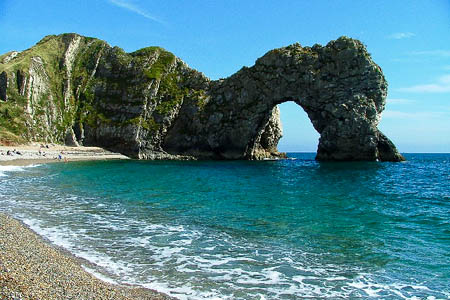Climbers’ rights are at risk if landowners’ objections are accepted on the first section of the proposed English Coast Path.
The British Mountaineering Council is fighting moves to ban climbers from sea cliffs and coastal routes in Dorset which would see rights granted under the Countryside and Rights of Way Act lost under new legislation.
The CRoW Act, the culmination of decades of campaigning by outdoor enthusiasts for the right to roam, granted climbers the rights to access classic routes such as Stair Hole, Mark of the Beast plus other routes on Durdle Door, Dungy Head and Arthur’s Mount.
Those rights could be quashed if a public inquiry decides in favour of landowners along the stretch of coastline in Weymouth Bay, site of the 2012 Olympic sailing events.
Natural England, the Government’s advisory body on the outdoors, plans to make the stretch between Portland and Lulworth Cove the first to open as coastal corridor access land under the Marine and Coastal Access Act passed by the last Labour Government, which also introduced the CRoW Act.
A public hearing was held this week at Lulworth to determine whether to accept Natural England’s proposals. The inspector will make his recommendation based on Department for the Environment, Food and Rural Affairs guidance, which says the Secretary of State and Natural England must aim to strike a fair balance between the interests of the public in having rights of access over land and the interests of any person with a relevant interest in the land.
The BMC’s worry is that this requirement to balance landowners’ interests could lead to the open access rights enjoyed under the CRoW Act.
Access and conservation office Rob Dyer, writing on the council’s website, said: “The land in question along this stretch, including the crags, was mapped as open access under CRoW in 2004, with climbing having been a legally allowed activity since that time.
“However, the MCAA supersedes CRoW, meaning that these access rights could potentially be lost if the objections are upheld.”
BMC chief executive Dave Turnbull and local representative Scott Titt joined Mr Dyer at the hearing, to speak in support of Natural England’s proposals. The council also a submitted written response to objections.
The final decision rests with Defra Secretary Caroline Spelman.
